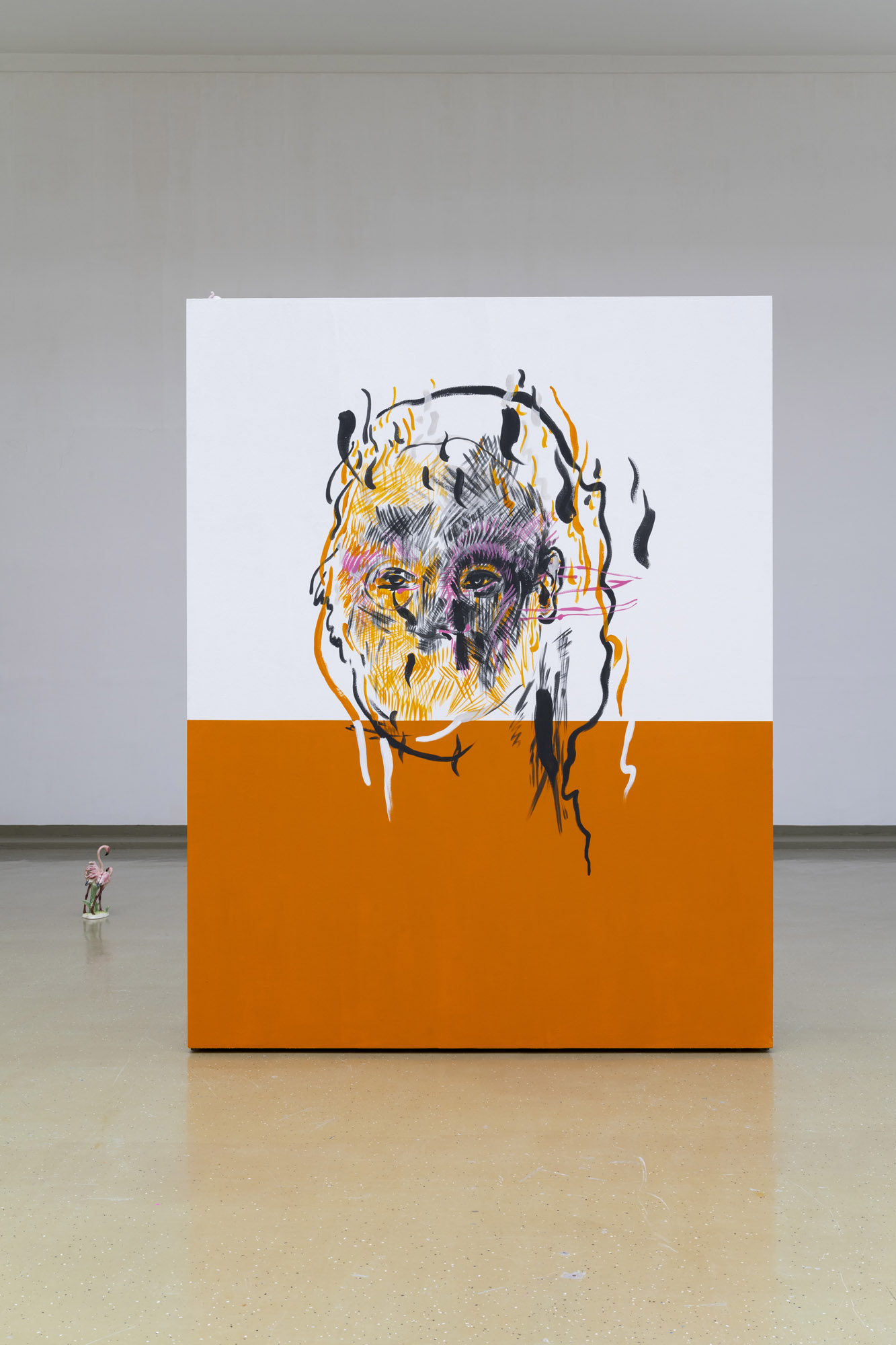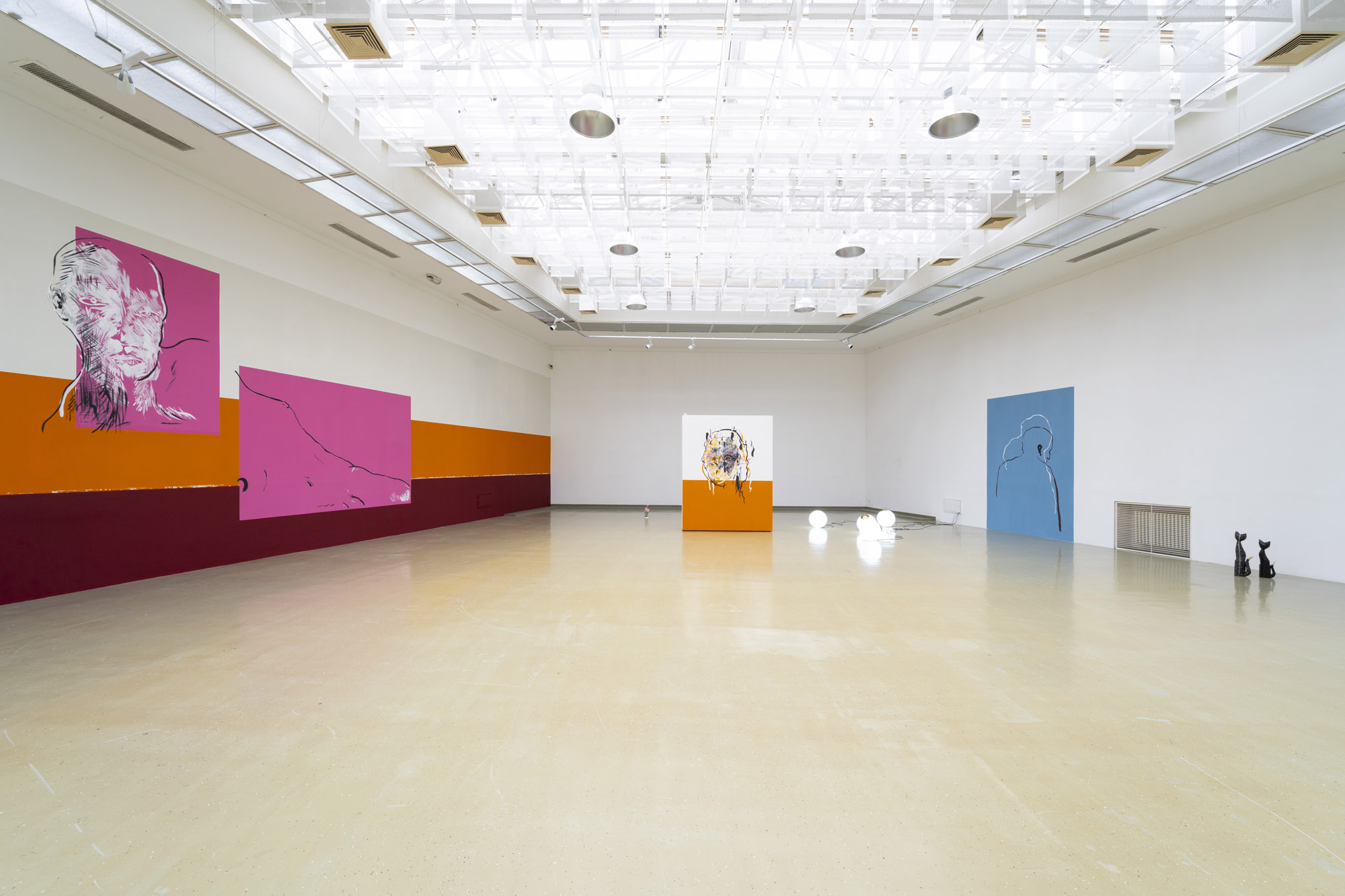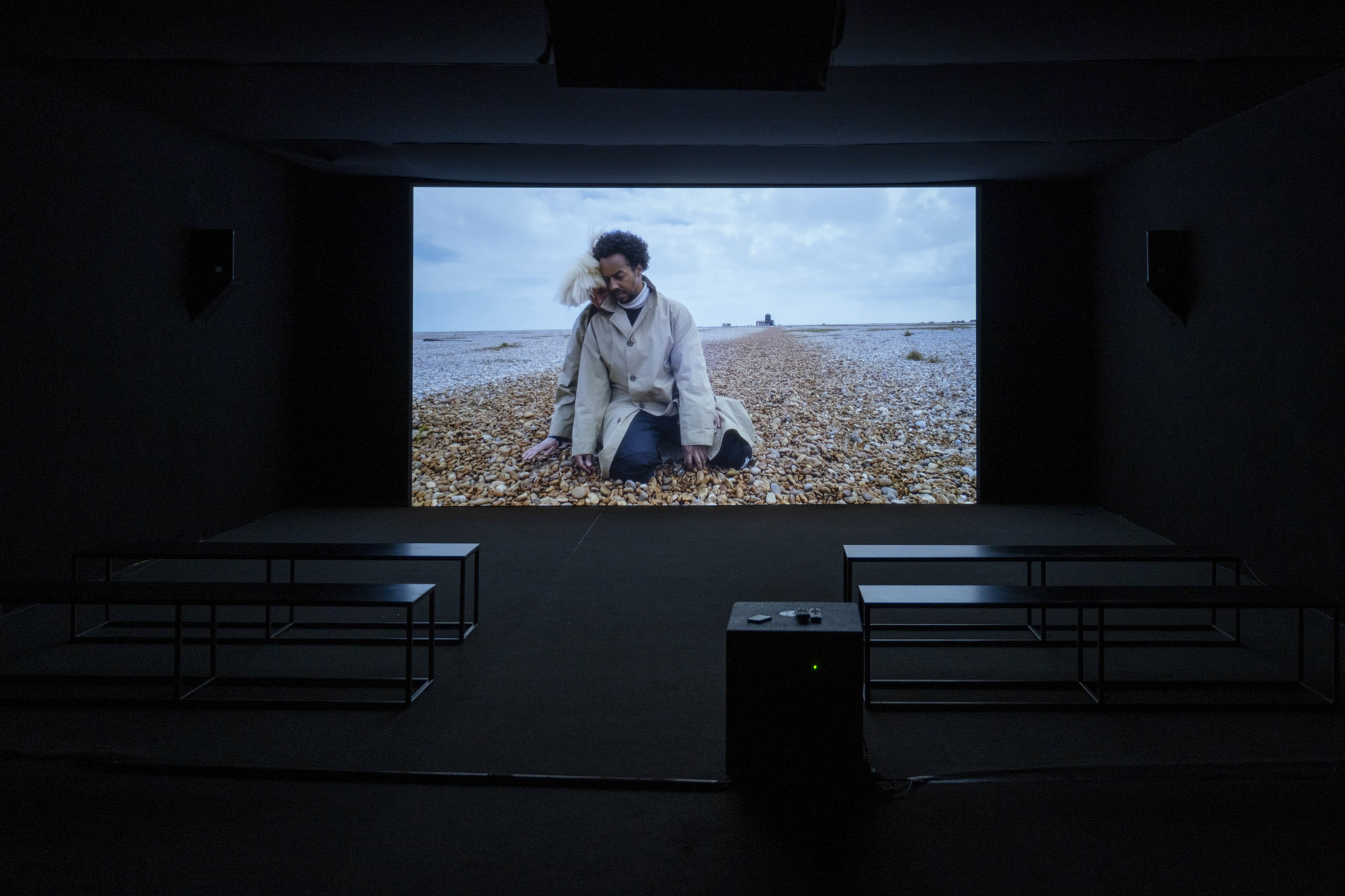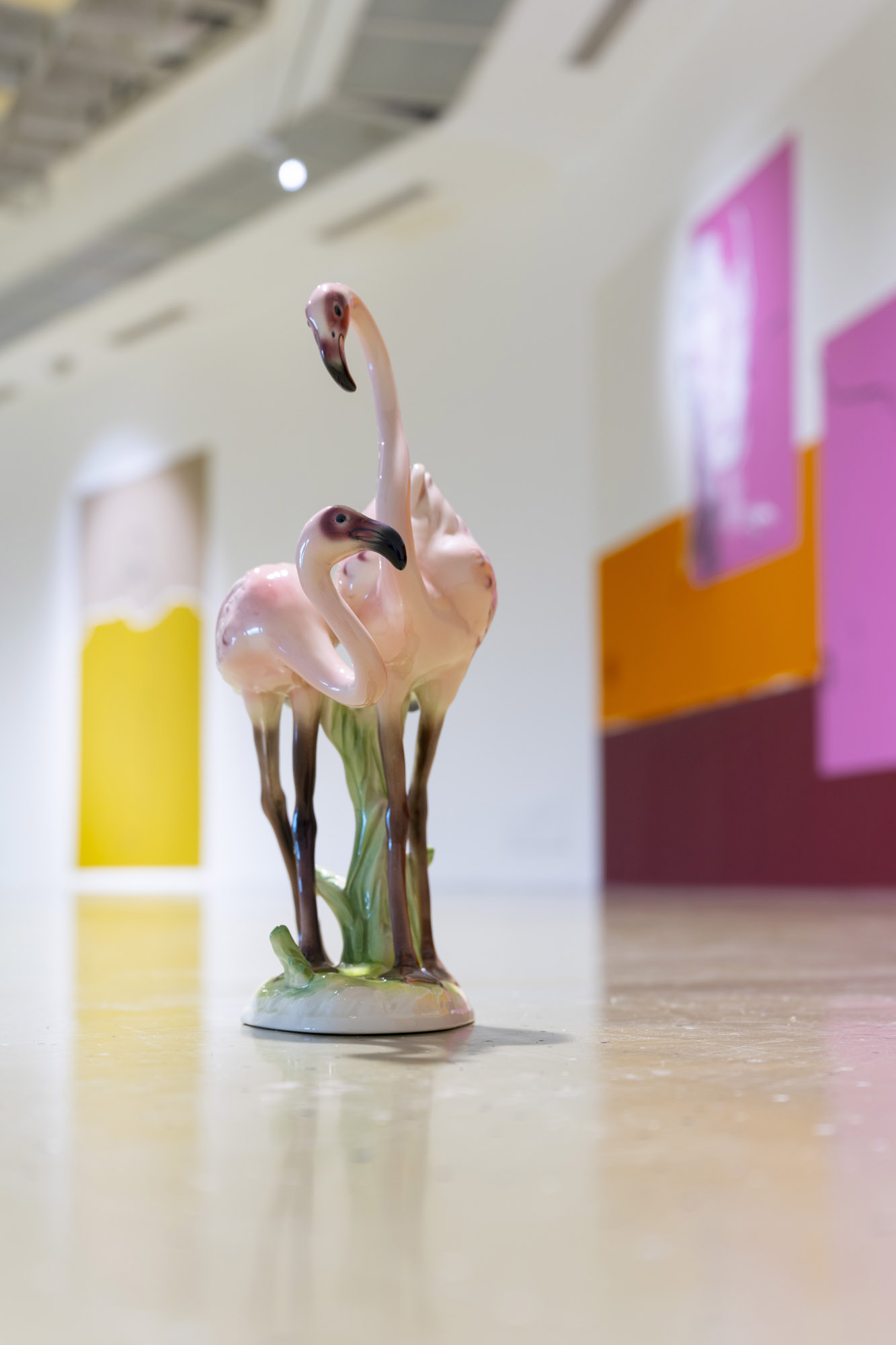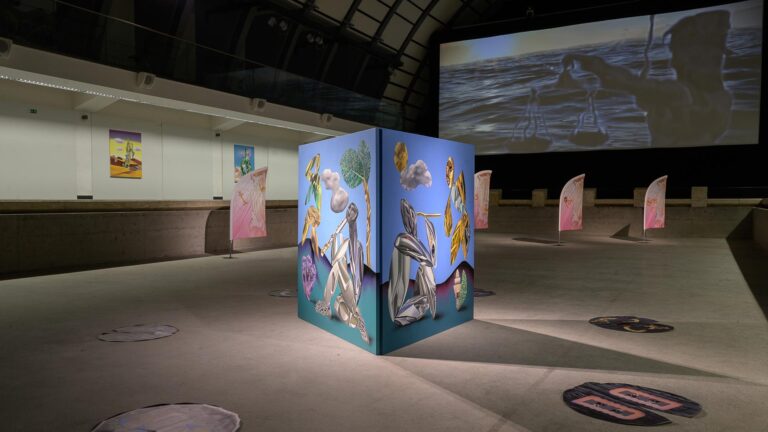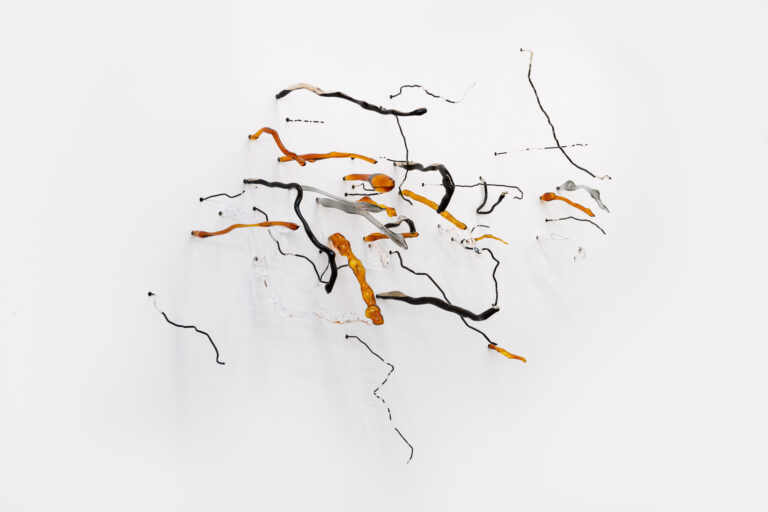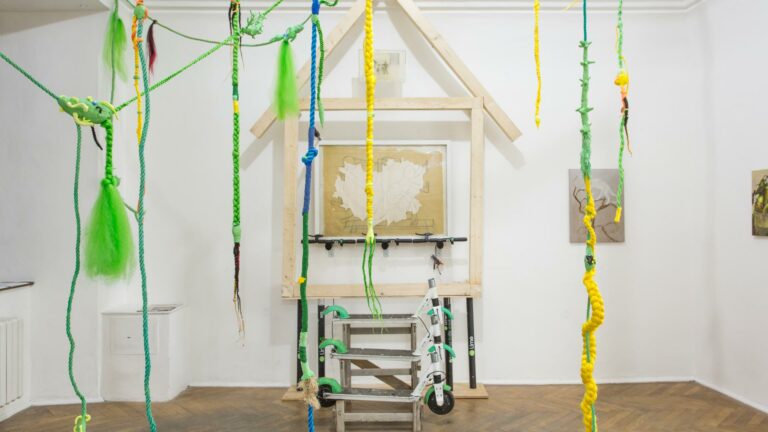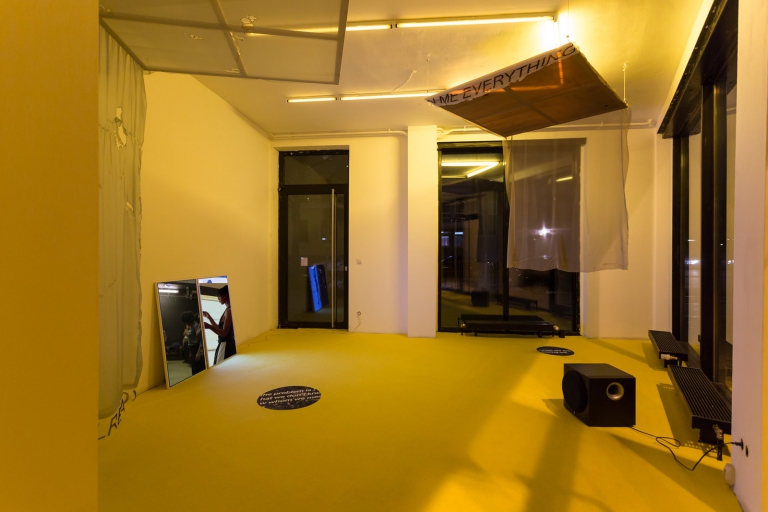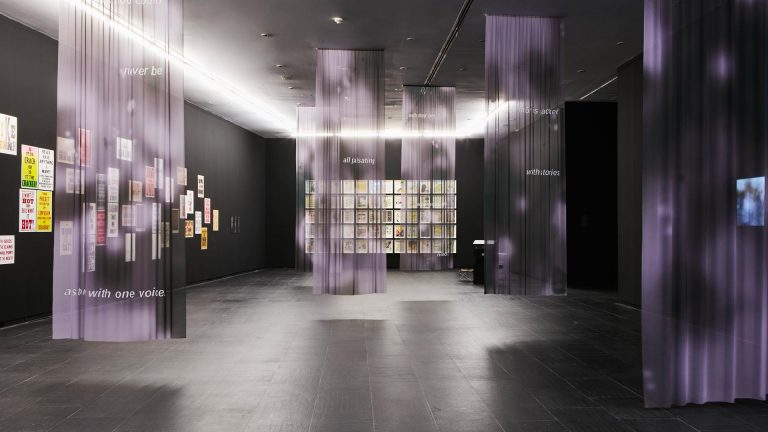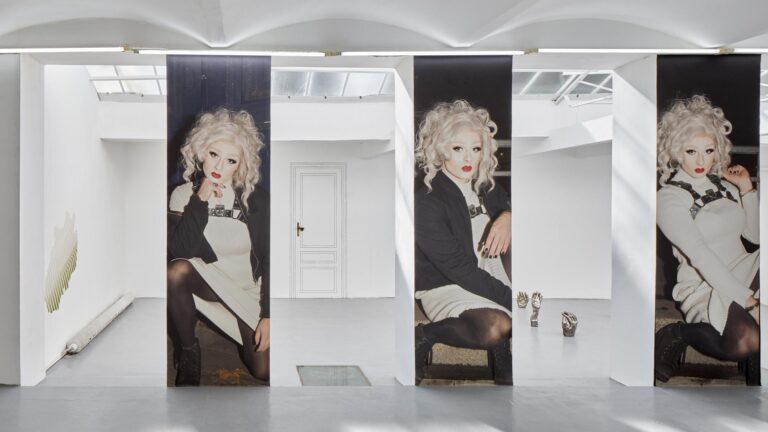Artist: Paul Maheke
Exhibition title: You and I
Curated by: Jen Kratochvil
Venue: Kunsthalle Bratislava, (A HALL and A BLACK BOX), Bratislava, Slovakia
Date: November 10, 2022 – January 31, 2023
Photography: Adam Šakový / All images copyright and courtesy of the artist, Kunsthalle Bratislava and their respective copyright owners
Kunsthalle Bratislava is very happy to announce its new solo exhibition of Paul Maheke, entitled You and I, curated by Jen Kratochvil. Paul Maheke’s first exhibition in Slovakia gravitates around topics of interdependency. Maheke stages circumstances formulated by the physical presence of objects, shapes, lines, forms, sounds, images and imaginations, or silly little animal figures. All of them build a resonating tension, interacting with each other, shifting attention from one to the other; drawing you in and out. Offering solace while immediately cutting your hopes short. There is a complex network of relationships in this exhibition and none of them are simply this or that, none of them exist within normalized binaries. They are all queer, which could mean anything, and that is just beautiful.
The exhibition You and I, presents Maheke’s film Mauve, Jim and John (2021), a tale about the various interactions between three entities. A tale based on modern myths, old fears and an escape from timeless oppressions. Although presented in A Black Box with its own separate entrance from the rest of the exhibition – Mauve, Jim and John, offers the viewer an interpretative lens through which they might perceive the remaining body of work present.
A Hall, functioning as a central stage, both literally and figuratively, becomes a place of change and transformation, processes both visible and invisible. A series of plants growing according to their own pace under that highly decorated skylight. Faces are obscured, a staircase is set, lights are spreading – replicated, and walls temporarily take on new identities. And there is clothing for everyone, don’t you even worry.
This is not just another queer show. This is a queer show in your local house of arts that offers you a non-restrictive space of expression.
This is not just another queer show. This is a protest. With all the political power and potency contemporary art can gather.
This queer show, like every queer show we present to you, is a celebration of diversity of thought, expression, sexuality, bodies and their place in this world.
The exhibition is accompanied by the online publication, edited by Denisa Tomková. It is already the fourth publication in a new publishing series, that provides further critical discursive thinking in the form of essays by international thinkers and writers. The texts are published bilingually: in the original English and also translated into Slovak for the first time. The essays in this publication critically explore the interdependence between humans, non-human living beings and their environment.
In their essay ‘Gender Politics and Right to Appear’ from the book Notes Towards a Performative Theory of Assembly, Judith Butler importantly highlights the precarious conditions in which gender and sexual minorities live. The essay vigorously argues that the aspects of language are very powerful. In the context of both this exhibition, and the recent homophobic murders in Slovakia, Butler’s essay very importantly prompts that we must constantly remind ourselves of the question at hand: ‘Which humans count as the human? Which humans are eligible for recognition within the sphere of appearance, and which are not?’ Butler argues for interdependence and an equal right to appear for all, including protection of our waters, soils and animal rights. Interdependence and transformation are also the main themes of Emanuele Coccia’s book Metamorphoses. The two selected texts from his book suggest that the interdependence of living beings not only changes the environment of other species, but also alters ‘the destiny of other species’. The publication concludes its theoretical contributions with José Esteban Muñoz’s essay ‘Felling Utopia’ from the book Cruising Utopia, which not only asks readers to reconsider ideas such as hope and utopia, but also urges us to consider the ‘queer critique from a renewed and newly animated sense of the social’. Paul Maheke’s short story The Mauve Hour accompanies and complements his exhibited film, Mauve, Jim and John. The Mauve Hour is a story about the forms of interdependence and metamorphosis of human and non-human living beings.
This publication reconsiders hope, prompting us to consider the formation of intellect as a relational non-individual act. It encourages us to analyse the relationship of our bodies to other bodies, the influence of language on gender politics, the interdependence of living beings that affects the fate of others, while proposing hope, utopia, and new possibilities. The publication, accompanying the exhibition You and I, invites us to contemplate a thin line (if any) between you and I.

